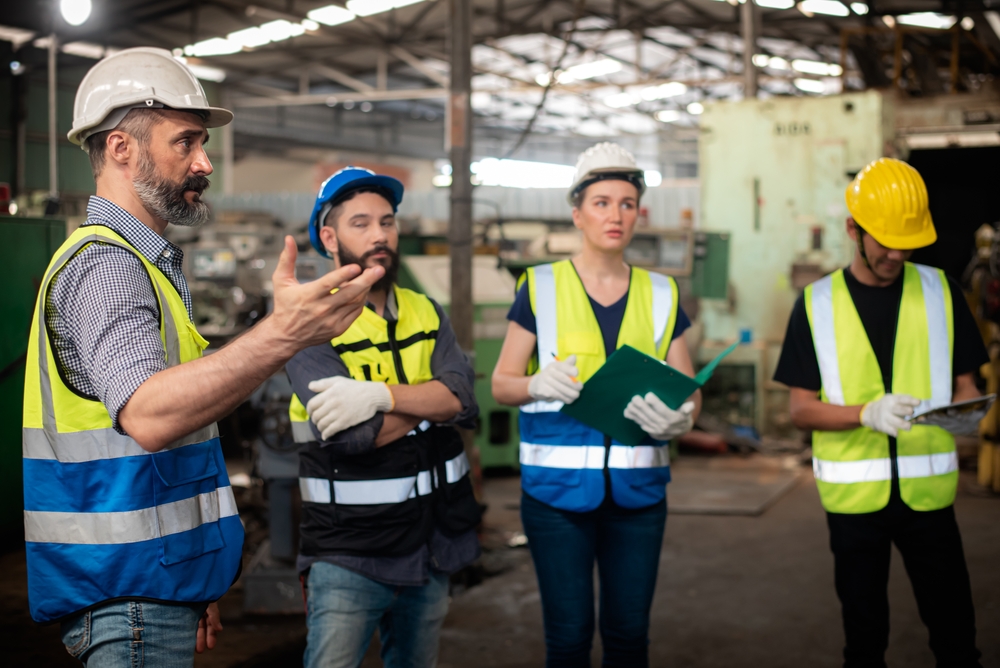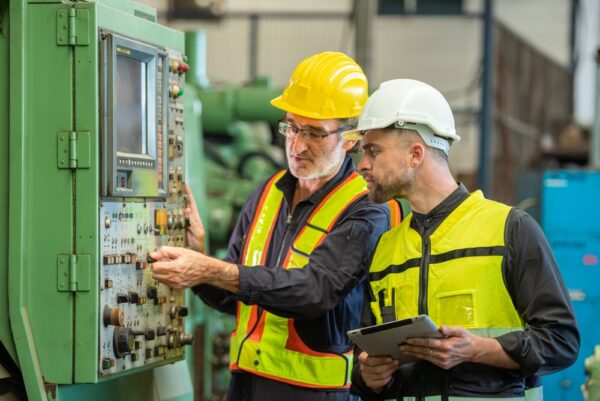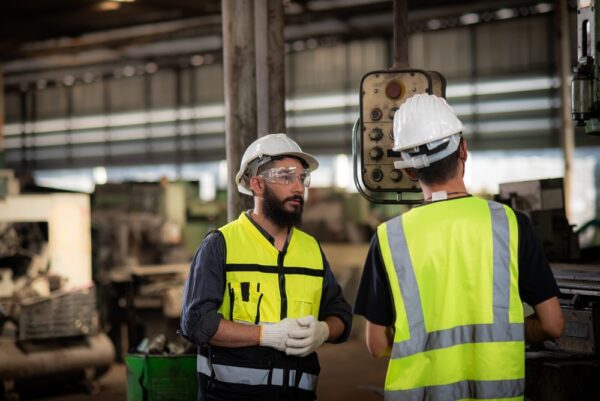How Cross-Training Maintenance Teams Can Improve Production Uptime

Your PLC specialist calls in sick on a Monday morning, and the filling line throws a fault at 6 a.m. Production sits idle for eight hours because nobody else can clear the error. This happens everywhere because one person holds critical knowledge. When that person becomes unavailable, everything stops.
The good news? Cross-training prevents this. It distributes skills across multiple people so uptime doesn’t hinge on who’s clocked in. Consider these five cross-training benefits:
1. It eliminates the ‘only one person knows how’ problem
When specialized knowledge lives in one technician’s head, that person controls your production schedule. The hydraulic expert goes on vacation? Hydraulic issues wait. The controls tech retires? You’re hiring frantically. These bottlenecks cost production hours.
Cross-trained teams mean multiple people can handle the same issue. The primary expert might be faster, but the secondary technician can still fix the problem without waiting. Take a packaging line running three shifts. If only the day shift lead knows servo drives, the second and third shift are stuck when those drives fault. Cross-train two more techs, and all three shifts can respond.
2. It cuts response time during off-hours and emergencies
Cross-trained technicians start troubleshooting immediately instead of waiting for a specialist. Even if they need backup, they’ve already gathered information and isolated the problem. A first responder who understands both electrical and mechanical systems can check power supply and alignment issues without calling two different people. That’s 30 minutes saved.
Off-hours coverage also improves dramatically. Weekend and night shift techs handle more problems independently, which leads to fewer emergency callouts and less overtime expense.

3. It improves problem diagnosis across system boundaries
Equipment failures rarely respect departmental lines. A motor overheats. Do you call for electrical, mechanical, or controls? The extruder runs inconsistently. Is it the gearbox or PLC?
Technicians who understand multiple disciplines diagnose faster because they don’t stop at their specialty boundary. An electrician with mechanical cross-training checks coupling alignment before assuming it’s a drive problem. Cross-trained teams communicate more effectively. When techs understand each other’s systems, they collaborate instead of pointing fingers. Fewer misdiagnosed problems mean less wasted time.
4. It gives scheduling flexibility that reduces overtime costs
Cross-training opens up scheduling options. Need someone to cover a controls issue during planned time off? You have three qualified people instead of one. A major project requires your best electrician? Other team members handle routine electrical work.
The workload also distributes more evenly. One tech isn’t constantly on call because they’re the only person who can deal with certain equipment. This reduces burnout and turnover. Emergency callouts drop when multiple people can respond to common issues. You’re not paying overtime to drag someone in at 2 a.m. for a problem another on-site tech could manage.

5. It protects against knowledge walking out the door
Experienced technicians retire. Good people get better offers. You can’t prevent turnover, but you can prevent it from crippling your operation. When critical knowledge exists in only one person, their departure creates an immediate capability gap. Projects stall. Response times increase.
Cross-trained teams share institutional knowledge. The skills don’t leave when one person does. Documented procedures mean something when multiple people know how to execute them. New technicians ramp up faster, too. Instead of one mentor, they learn from multiple experienced team members.
Cross-training turns expertise into team capability
Production uptime shouldn’t depend on whether the right person happens to be available. Cross-training spreads knowledge across the team so coverage, response time, and problem-solving all improve. The facilities that run most reliably don’t have one expert for every system. They have teams where multiple people can handle the same problems.
Are you ready to make a lasting investment in reliability? Stop letting individual knowledge control your production schedule. Instead, build teams that function regardless of who’s on shift.
